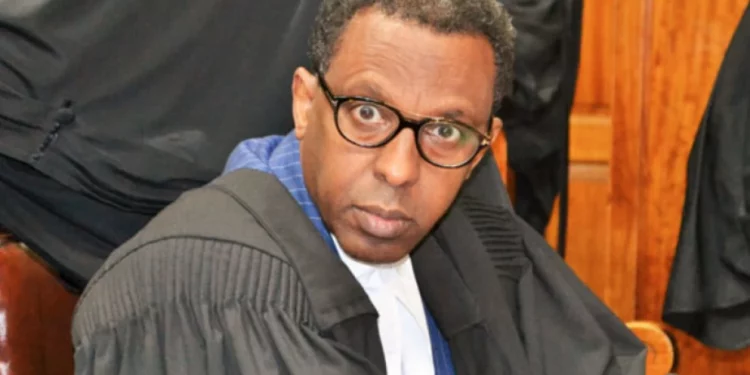A senior Kenyan lawyer has made shocking claims that four out of the seven Supreme Court judges who unanimously upheld William Ruto’s presidential election win last year took bribes of up to $2 million each, but failed to influence the outcome.
In a petition before the East African Court of Justice, Ahmednasir Abdullahi alleged “Judge A accepted a bribe…delivered at [their] home in Nairobi by a very powerful politician.” He further claimed “Judge B accepted bribes from 3 individuals” including “the son of a deceased leader, a retired governor and an influential businesswoman.”
“Judge C took a bribe from a member of the National Intelligence Service who subsequently left,” and “Judge D accepted a bribe from a member of Parliament” initially intended for the judge’s wife, the petition states.
This forms part of a lengthy chronicle by Abdullahi detailing alleged corruption, misconduct and incompetence by current and former judges of Kenya’s highest court over the years. The prominent lawyer is seeking to justify previous public statements he made which drew the ire of the Supreme Court.
“It is significant that the…posts, interviews and write-ups…concern the shortcomings of the Supreme Court as a troubled institution riddled in corruption, where incompetence is widespread and political patronage defines its relationship with the Executive,” his petition argues.
He cites various other cases including one where a tribunal unanimously recommended firing the first Deputy Chief Justice for assaulting a security guard, and another where leaked Panama Papers allegedly showed a judge operating offshore companies.
“Deputy Chief Justice Kalpana Rawal and Justice Tunoi would openly challenge the authority of the JSC to retire them…Tunoi was accused of taking a $2 million bribe to influence an election petition outcome,” the petition alleges.
In another instance, “A petition was filed…seeking the removal of [four judges] for taking a bribe in order to influence the outcome of the Wajir Governor election petition.”
The claims paint a troubling picture of an judiciary plagued by unethical conduct at its highest levels. However, many of the allegations appear to be previously reported cases that did not necessarily result in convictions.
The Supreme Court had previously suspended Abdullahi from practicing before it for making such claims.
The lawyer is seeking to overturn that suspension, calling it “an arbitrary action…not anchored in any provision of formal law” and a violation of the “rule of law and principle of legality.”
Ahmednasir requests the court to award him damages totaling KES 200 million, representing legal fees forfeited due to the ban imposed by the Supreme Court.


















